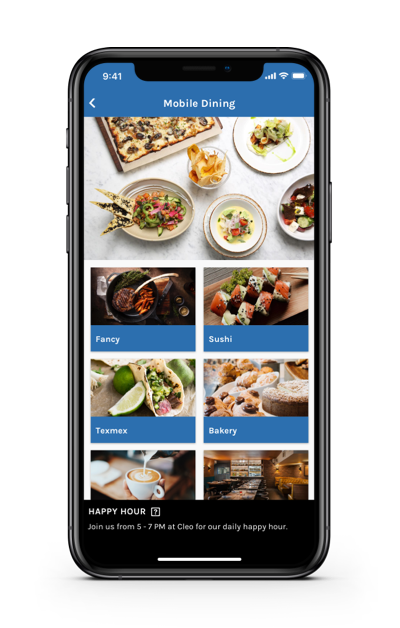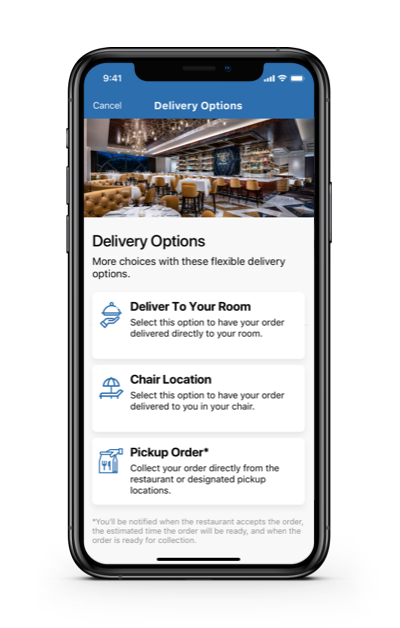These lasting trends, recovery strategies, and success stories are key indicators for what travel looks like in 2021 and beyond.
Last week, Skift brought together industry leaders, hoteliers, and editors to discuss the future of travel and guest experience in the one-day virtual Hospitality & Marketing Summit. The goal was to take stock of the hospitality industry’s recovery and forward trajectory at this critical moment. The good news is: overall outcomes are optimistic. Leisure travel is back in a major way, driving a busy summer for U.S. domestic travel, with anticipated increases in business and event bookings this fall.
Discussion around COVID was present throughout the Summit, but it was refreshingly positive and centered around eagerness for forward movement. As a result, a few through lines appeared in nearly every session: recovery strategies, the guest experience, and success stories.
People Are Ready to Travel, and Hotels Have been Optimizing Their Digital Marketing and Guest Personalization to Entice Guests and Drive Revenue
In the U.S., there is a 50% upswing in summer travel and bookings over summer 2019. As more countries emerge from the pandemic and lift restrictions, international travel is expected to increase as well. Travel is coming back with ferocity, in what many in the industry are calling “travel revenge,” fueled by pent-up demand, broader inoculation, and lifting restrictions.
Occupancy rates are up not only in major cities and on weekends, but in secondary cities and weekdays as well. And because many families were not able to take summer vacations in 2020, they are planning to take two or three trips this summer.
According to Melissa Maher of Expedia Group, properties have seen increases in bookings since utilizing new marketing strategies and offering travelers more flexibility. In fact, a recent Skift survey found hotels that promote local activities and attractions (61.54%) and emphasize convenience and flexibility (30.77%) are most likely to stand out to consumers as travel returns. Right now travelers are cautious about their booking, some making reservations further out than usual to accommodate any unexpected circumstances.
As we see more companies extend and encourage flexible or hybrid work environments, the “digital nomad” trend of working from anywhere will continue as the new normal. Many people are tired of working from their homes and are expressing plans to move for a week or month at a time to experience new locations and work environments, many taking their partners, families, and pets along for the ride.
In short: the booking pace is up, room revenues are increasing, and in some markets, room rates are higher now than they were in 2019. All this signals optimism for a swift recovery for the hospitality and travel industries.
The Guest–and Staff–Experience is Mobile and It’s Here to Stay
While COVID was a painful experience for the entire hospitality industry, many hotels and brands took the opportunity of the shutdowns to re-evaluate their business models and streamline operations, as well as implement technology and systems to augment the guest and staff experience.
For MGM Resorts, the move to mobile is without a doubt the lasting COVID legacy that guests will continue to experience at their properties for years to come. More than 40% of MGM’s customers now check in on a mobile device and never set foot at the front desk.
“Mobile check-in that serves as your room key, or you go up to a stand and swipe and it calls you when it’s your turn to go in… the ability to contact and stay connected to your customer through their mobile device and minimize the impact of volume, like at the 4,000-room Bellagio, is critical,” said Bill Hornbuckle, CEO & President of MGM Resorts. “You can check in as soon as you land and go right to your room. You can buzz down for a reservation, you can buzz down for a cabana; it’s a mobile concierge.”
Ultimately, a mobile-first guest experience platform is about connectivity with guests, and the data it provides about customers enables a hotel to give guests what they want and need. And in-room tablets and smart rooms empower guests to create their own experience, request the services and amenities they want when they want them, and frees up staff to focus their attention where it’s needed most.
“Mobile check-in is a meaningful way around that activity. I wish 80% of our customers used it. I’d love to have everything mobile and our people concierge. We’re there to be hospitable, not to check you in. It’s a process we want to avoid. I want to quickly get you what you want and need,” said Hornbuckle.
Even large global brands like Hilton accelerated their contactless mobile capabilities in 2020 with mobile check-in and mobile key in addition to the already rolling out smart rooms properties. They’ve even seen many of their hotels move to digital compendiums in the rooms. They serve a need for the hotels to be able to share information as well as just be personalized to the guest when they arrive in the room. And during the Skift Summit, Hilton announced the global brand is solving a longtime traveler frustration by implementing Confirmed Connected Rooms, which enables guests to easily book and confirm up to two connecting or adjacent rooms through the website or mobile app.
“We know that at the end of the day, we’re a people-serving-people business; [our guests] want friendly and reliable. A lot of our focus when we look at convenience or contactless–what allows for both guest convenience and also pulls our team members away from some of the transactional items and allows them to really be able to engage directly with our guests in a more friendly way,” said Mike Gathright, Senior Vice President & Head of Customer Experience at Hilton.
Personalization, customization, and guest satisfaction are key drivers for implementing a mobile-first guest experience platform. But minimizing costs, streamlining operations, and increased revenue are also widely-felt benefits of digital platforms. Many of these technology solutions like mobile check-in and mobile key are investments for the long-term, and those who invested in these guest experience tools will continue to see benefits in guest engagement and loyalty.
Lifestyle and Boutique Hotels Are Taking the Spotlight Post-Pandemic
Hotels are expanding the meaning of hospitality beyond the walls of the building, creating what Steven Taylor, CMO of Accor, dubbed “augmented hospitality.” Travelers are increasingly seeking more than exceptional service and experiences, they want to stay at a hotel or resort that is part of and does good for the surrounding community.
“There’s been an extreme change in human behavior in the last year. There are core values that started to emerge around travel, sustainability and social impact,” said Taylor. “Now that things are coming back, do we revert to the way travel was before or meet the new traveler with their expectations?”
Lifestyle hotels are meeting guest expectations by understanding what each individual traveler wants, tapping into the emotional part of travel, and having a purpose beyond just driving revenue. By engaging with the local community and welcoming a mix of both locals and guests, lifestyle hotels are creating a unique experience for travelers. Sustainability, social impact, wellbeing, and regenerative travel are very much still priorities for many travelers, and many properties are finding new ways to connect with guests and involve them in activities that reflect these tenets.
As travel returns and the industry rebounds, it’s important to look to the solutions and trends that have proven successful for hotels in order to stay connected with their guests while maintaining satisfaction and safety. Overall, traveler expectations have evolved; the industry has pivoted to adapt technology and protocols that meet this evolution and offer guests the convenience, control, and personalization they expect.
Learn how a mobile-first guest experience can drive guest satisfaction and revenue for your property. Request a demo.
Request a Demo
Sources
- Mike Gathright, Senior Vice President & Head of Customer Experience at Hilton
- William Hornbuckle, CEO & President of MGM Resorts International
- Lisa Checchio, EVP & CMO of Wyndham Hotels & Resorts
- Melissa Maher, SVP of Marketing and Industry at Expedia Group/li>
- Steven Taylor, CMO of Accor
 Now properties with more than one dining option can list the menus for all of their restaurants on the hotel app. This, paired with our
Now properties with more than one dining option can list the menus for all of their restaurants on the hotel app. This, paired with our  Delivery anywhere on property is one thing. But the second added feature really seals the deal for a holistic digital dining experience. Our platform now allows for pickup as well as delivery. For business people who want to grab breakfast on their way out, for vacationers on their way to sight see, for anyone who wants restaurant-quality food on their way to the next thing: pickup is available.
Delivery anywhere on property is one thing. But the second added feature really seals the deal for a holistic digital dining experience. Our platform now allows for pickup as well as delivery. For business people who want to grab breakfast on their way out, for vacationers on their way to sight see, for anyone who wants restaurant-quality food on their way to the next thing: pickup is available.